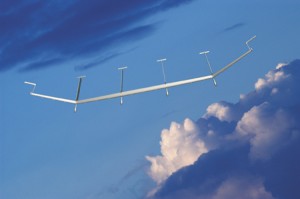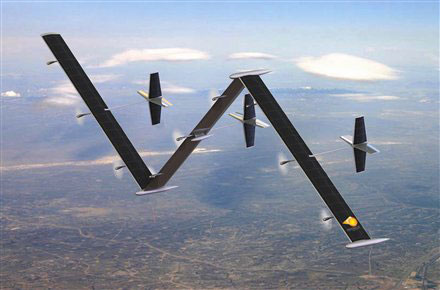 DARPA’s Vulture program is developing an unmanned aircraft capable of remaining on-station uninterrupted for over five years. Boeing September 14th 2010 signed an agreement with the U.S. Defense Advanced Research Projects Agency (DARPA) to develop and fly the SolarEagle unmanned aircraft for the Vulture II demonstration program. Under the terms of the $89 million contract, SolarEagle will make its first demonstration flight in 2014.
DARPA’s Vulture program is developing an unmanned aircraft capable of remaining on-station uninterrupted for over five years. Boeing September 14th 2010 signed an agreement with the U.S. Defense Advanced Research Projects Agency (DARPA) to develop and fly the SolarEagle unmanned aircraft for the Vulture II demonstration program. Under the terms of the $89 million contract, SolarEagle will make its first demonstration flight in 2014.
“SolarEagle is a uniquely configured, large unmanned aircraft designed to eventually remain on station at stratospheric altitudes for at least five years,” said Pat O’Neil, Boeing Phantom Works program manager for Vulture II. “That’s a daunting task, but Boeing has a highly reliable solar-electric design that will meet the challenge in order to perform persistent communications, intelligence, surveillance and reconnaissance missions from altitudes above 60,000 feet.”
Under the Vulture II agreement, Boeing will develop a full-scale flight demonstrator, including maturation of the critical power system and structures technologies. Key suppliers for the program include Versa Power Systems and QinetiQ.
During testing, the SolarEagle demonstrator will remain in the upper atmosphere for 30 days, harvesting solar energy during the day that will be stored in fuel cells and used to provide power through the night. The aircraft will have highly efficient electric motors and propellers and a high-aspect-ratio, 400-foot wing for increased solar power and aerodynamic performance.
SolarEagle is one of Phantom Works’ rapid prototyping efforts, which also include Phantom Ray, a fighter-sized, unmanned, advanced technology demonstrator scheduled to make its first flight in early 2011, and the hydrogen-powered Phantom Eye demonstrator, a High Altitude Long Endurance aircraft designed to stay aloft for up to four days, also scheduled to make its first flight in 2011.




